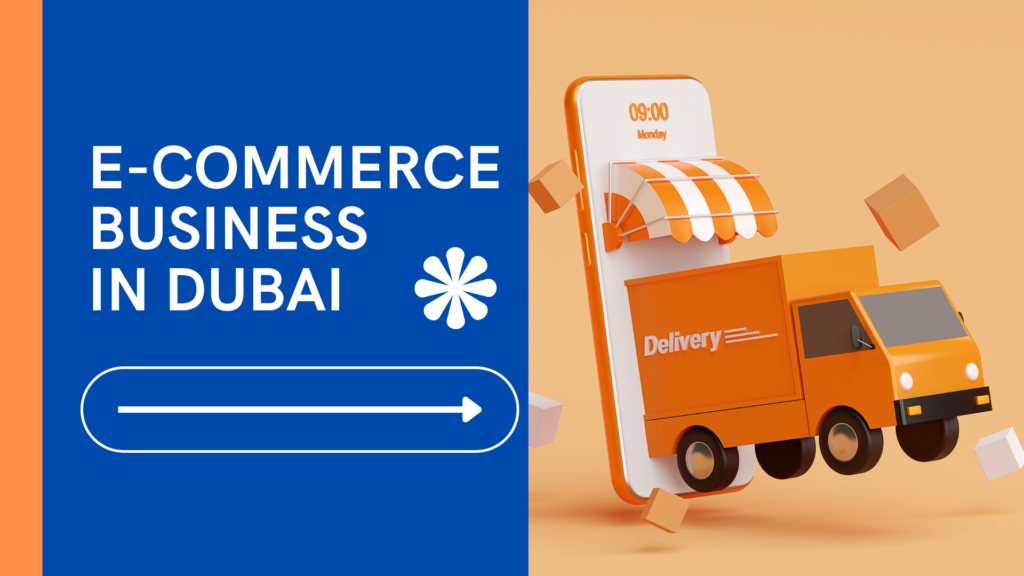Dubai has rapidly become a hub for e-commerce, thanks to its strategic location, business-friendly policies, and tech-savvy population. Whether you’re looking to sell products locally or internationally, starting an e-commerce business in Dubai offers immense opportunities. This guide will walk you through the essential steps to establish and grow your online business.
Why Start an E-commerce Business in Dubai?
- Booming Market: The UAE’s e-commerce market is projected to grow exponentially in the coming years.
- Tax-Free Environment: Dubai’s tax-friendly policies make it easier to maximize profits.
- Global Connectivity: Dubai’s infrastructure supports seamless international trade.
- Digital Adoption: High internet penetration and smartphone usage make Dubai a fertile ground for online businesses.
Steps to Start an E-commerce Business in Dubai
1. Choose Your Business Model
Decide whether you want to:
- Sell products (physical or digital)
- Offer services
- Operate a dropshipping model
2. Select a Legal Structure
Choose the appropriate business structure, such as:
- Sole Proprietorship
- Limited Liability Company (LLC)
- Free Zone Company
3. Register Your Business
- Register your business with the Department of Economic Development (DED) or a free zone authority.
- Choose a unique trade name and ensure it complies with UAE’s naming conventions.
4. Obtain an E-commerce License
Apply for an e-commerce license, which may include:
- Commercial License
- Professional License (for services)
Popular free zones for e-commerce include:
- Dubai Internet City
- Dubai Silicon Oasis
- Jebel Ali Free Zone (JAFZA)
5. Build Your Online Store
Use platforms like Shopify, WooCommerce, or Magento to create a user-friendly and visually appealing website. Ensure it includes:
- Mobile responsiveness
- Secure payment gateways
- Search engine optimization (SEO)
6. Set Up Payment and Logistics
- Integrate secure payment gateways like PayPal or Stripe.
- Partner with reliable logistics providers for efficient delivery.
7. Comply with Legal Requirements
Ensure compliance with:
- UAE’s consumer protection laws
- Data protection regulations
Costs of Starting an E-commerce Business in Dubai
The cost of setting up an e-commerce business in Dubai includes:
- License Fees: AED 10,000 to AED 30,000, depending on the authority.
- Office Space: Free zones often require a physical presence.
- Website Development: AED 5,000 to AED 50,000, depending on complexity.
- Marketing and Advertising: Variable based on your strategy.
Marketing Your E-commerce Business
- Leverage Social Media: Platforms like Instagram and Facebook are popular for promoting e-commerce businesses in Dubai.
- Invest in SEO: Optimize your website for search engines to attract organic traffic.
- Run Paid Campaigns: Use Google Ads or social media advertising to reach a broader audience.
- Collaborate with Influencers: Partner with local influencers to boost brand visibility.
- Email Marketing: Build an email list to engage with potential customers.
Benefits of Setting Up in a Free Zone vs. Mainland
| Aspect | Free Zone | Mainland |
|---|---|---|
| Ownership | 100% foreign ownership | Local sponsor required (in most cases) |
| Market Access | International focus | Access to local and international markets |
| Cost | Higher setup fees | Lower setup fees |
Challenges to Consider
- Competition: The e-commerce market in Dubai is highly competitive.
- Logistics: Efficient delivery can be challenging, especially for international shipping.
- Compliance: Adhering to local laws and regulations is crucial.
Conclusion
Starting an e-commerce business in Dubai offers endless opportunities for growth and profitability. By following the steps outlined above and leveraging Dubai’s favorable business environment, you can establish a successful online store. Stay committed, adapt to market trends, and utilize digital tools to scale your business.
